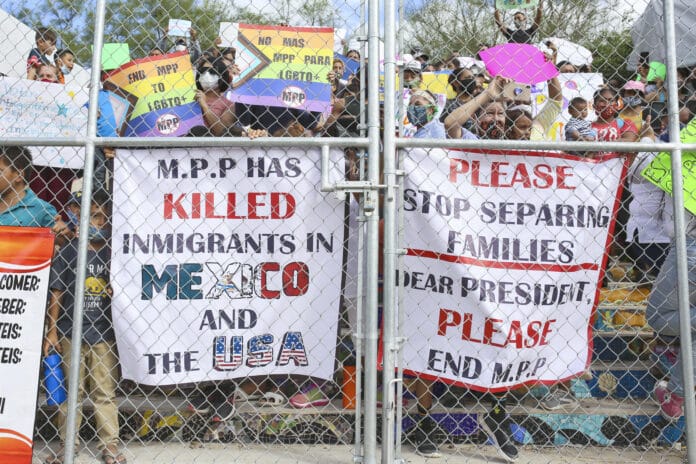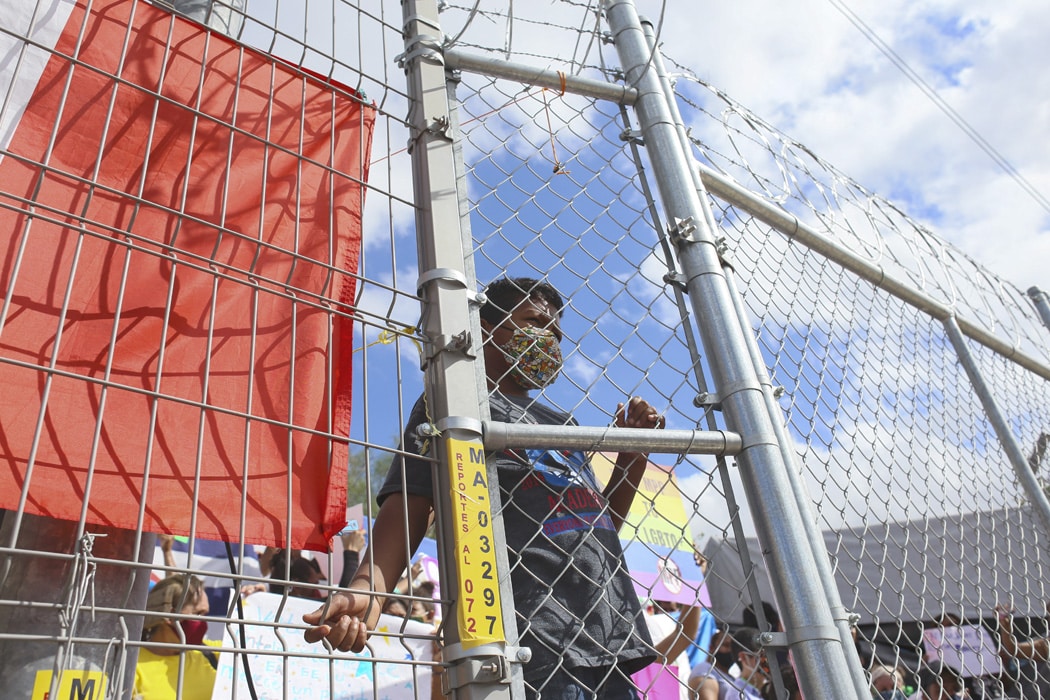
Cartel kidnappings, gang rape, disappearances and floating bodies — these terrors fill the affidavits provided by asylum seekers recounting their experiences in Mexico for a civil lawsuit against the Trump Administration’s Migrant Protection Protocol filed Jan. 11 in Brownsville.
“The lawsuit argues that the MPP program is unlawful as it has been applied to our clients,” Amanda Waterhouse, a lead attorney, said in a statement provided to The Monitor.
MPP is a policy requiring migrants to wait for their U.S. immigration court hearings in Mexico. A decision on this lawsuit would not impact all participants but could impact many of them.
“We will be seeking class certification and the potential class could include thousands of migrants subject to MPP,” Waterhouse said, adding, “Ultimately, we will be seeking an order that our class members should not be subject to MPP but that would not necessarily result in the end of the MPP program entirely.”
The team of attorneys claim MPP violated the Immigration and Nationality Act, the Administrative Procedure Act, and the plaintiffs’ due process rights under the 5th Amendment of the Constitution.
Migrants sent back to Matamoros, Nuevo Laredo and as far as Piedras Negras allege they expressed fear of being sent to Mexican border states, like Tamaulipas and Coahuila — states the U.S. Department of State classifies as “do not travel” areas.
A father with two sons recalled their reaction when U.S. border officials told them they would be sent back to Mexico under MPP. “I was crying, and my older son cried and hugged me. He said, “Dad, we’re going to suffer here.”“
Many ended up living in Matamoros. It began with a few people sleeping on cots near the bridge. Tents, small and large, were assembled in the plaza and later moved into a more organized area in a fenced park by the bridge.
“Life here grows more dangerous each day,” a 39-year-old Honduran woman living in the Matamoros camp with her son for over a year, said. The woman shared pictures of the impoverished conditions at the camp where they live in a tent and cook in a makeshift outdoor cooking area.
Insects, snakes, rats, disease and flooding pose some of the frequent dangers.
Access to clean restrooms is restricted when portable toilets without running water are closed after becoming “too dirty and full of human waste,” according to one of the affidavits.
Some medical care is provided at the camp by volunteers, but Mexican hospitals, migrants alleged, refused entry to expecting mothers on multiple occasions due to their immigration status or inability to pay.
The greatest threat moving as an undercurrent in the daily lives of a migrant waiting for their U.S. court hearings in Mexico is violence at the hands of the cartel.
“The men guarding the camp allow the criminal organizations to enter,” an Honduran woman declared in her affidavit. “They are not supposed to, but they are probably scared like everyone else. Migrants are attacked at night. Sometimes people disappear and we never hear from them again.”
Many of them recall the death of a migrant man whose body was found after he disappeared.

Shootouts between the cartel and the military send migrants scurrying for shelter in their homes made out of penetrable plastic.
A 27-year-old pregnant woman from El Salvador fleeing rape, abduction and sexual slavery by the MS-13 gang fell prey to great evil in Mexico.
She traveled to the Nuevo Laredo border with her partner, the father of her child, in a bus. When they reached the outskirts of the city, four suspected cartel members pulled them off the bus and took them to a ranch.
The woman was sexually assaulted by all men while her partner was tied down, forced to witness it, and dragged away never to be seen again. The men locked her for days, where they repeatedly abused, assaulted, and beat her until she escaped.
Though she reached the U.S. she was advised she would be returned to Nuevo Laredo under MPP. “At the mention of Nuevo Laredo, flashbacks of my captivity and sexual abuse flooded my mind. My body froze,” she said in her affidavit. She returned to Mexico but is living in Piedras Negras.
Migrants with similar experiences were sent back to Mexico in spite of their expressed fears. These fears are normally addressed with an immigration judge in a process called non-refoulement.
The attorneys allege DHS failed to comply with non-refoulement procedures and the plaintiffs’ “rights to not be removed to a country where they fear persecution or torture” were violated.
Waterhouse said they filed suit knowing a new administration is interested in ending MPP, though details on a timeline are unknown. “We felt it was necessary to go ahead with the suit because every day our class members remain in Mexico is another day they face possible harm,” she said.
Under the Biden Administration, DHS announced they will no longer be enrolling people into the Migrant Protection Protocols program effective Jan. 21.
MPP hearings halted by COVID will soon resume requiring migrants like the woman who went to Piedras Negras to return to dangerous Mexican border cities like Nuevo Laredo.
She now has her child by her side and is dreading her upcoming court date and trip to the city where she lost part of her family. “I think about how her father watched me being gang raped and could only cry helplessly. I know that if my daughter is taken from me and hurt, I would feel the same way.”



